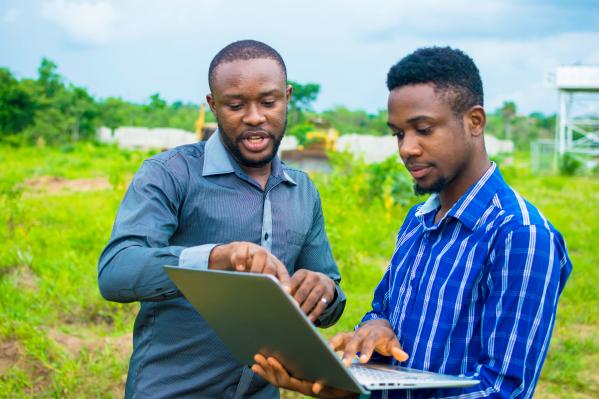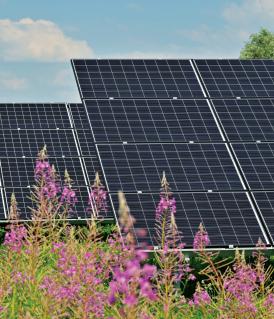Fostering sustainable development

German development policy Development policy German development policy as a constituent part of a global structural and peace policy endeavors to improve living conditions in partner countries. The Federal Government, in close collaboration with the international community, is committed to fighting poverty, to peace and democracy, to… Read more › is a cornerstone of a global structural and peace policy, helping improve living conditions in partner countries. It aims to defeat hunger and poverty around the world and to strengthen democracy and the rule of law. Germany’s development policy follows the 2030 Agenda for sustainable development, which was adopted by the General Assembly of the United Nations United Nations The United Nations (UN) has a key role to play in the international system. Germany has been a UN member since 1973. Since joining, Germany has taken on more and more responsibility and is now one of the largest donors and supporters of the United Nations. For example, Germany is the second largest… Read more › in 2015. At its heart are 17 sustainable development goals (SDGs) on three levels:
- social
- economic
- environmental
The SDGs range from eradicating hunger and ensuring equal access to education for all, to taking climate action and promoting peace.
The Federal Government Federal Government The Federal Government and cabinet is made up of the Federal Chancellor and the Federal Ministers. While the Chancellor holds the power to issue directives, the ministers have departmental powers, meaning that they independently run their respective ministries in the framework of those directives… Read more › is a trusted and robust partner when it comes to implementing the development agenda. As one of the largest providers of funding for public development work, Germany is taking responsibility by actively shaping global partnerships. In 2024, Germany made around 30 billion euros available to support developing countries. Support for projects in partner countries is provided by GIZ (the Deutsche Gesellschaft für Internationale Zusammenarbeit), the KfW banking group and other organisations.
Which areas does German development policy focus on?
In the years after the Second World War, Germany itself received billions of dollars of aid from the USA’s Marshall Plan. For decades it has implemented an active development policy Development policy German development policy as a constituent part of a global structural and peace policy endeavors to improve living conditions in partner countries. The Federal Government, in close collaboration with the international community, is committed to fighting poverty, to peace and democracy, to… Read more › and in 1961 became the first country in Europe to establish a Ministry for Development. German policy prioritises promoting ways for people to help themselves, acting as part of a broad partnership that includes members of the public, private enterprise, and state and civil society organisations as well as governments. The Federal Ministry for Economic Cooperation and Development (BMZ) sees its role as a ministry of transformation, promoting the global transition to a sustainable, climate- and environmentally friendly economic system, while at the same time strengthening peace, freedom and human rights. Significant aspects of German development policy are:
- combating hunger and poverty,
- protecting the climate and species diversity,
- health
- education,
- fair supply chains,
- the use of digitalisation and technology transfer,
- boosting private investment to promote sustainable development worldwide.
What is Germany doing to combat hunger?
The global fight against hunger remains a key challenge. In 2024, Germany was the second-largest donor to the World Food Programme (WFP) of the United Nations United Nations The United Nations (UN) has a key role to play in the international system. Germany has been a UN member since 1973. Since joining, Germany has taken on more and more responsibility and is now one of the largest donors and supporters of the United Nations. For example, Germany is the second largest… Read more › . The Federal Government Federal Government The Federal Government and cabinet is made up of the Federal Chancellor and the Federal Ministers. While the Chancellor holds the power to issue directives, the ministers have departmental powers, meaning that they independently run their respective ministries in the framework of those directives… Read more › provided the programme with around 900 million euros. In this context, Germany is committed to humanitarian assistance following disasters and also funds long-term development programmes.


